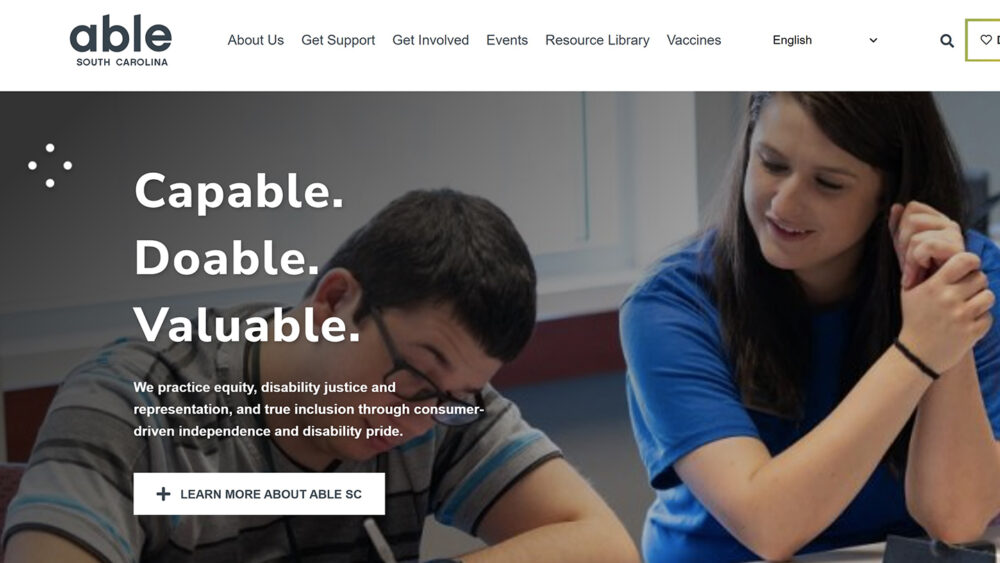Are you able to read this blog post without difficulty? Was it easy to find? Can you follow the links easily?
Great, because we wanted you to see this, and absorb it. But at ADCO, we want to reach everybody. And some people face obstacles that you don’t even think about – they’re unable to see the screen, or they have physical trouble using a mouse or clicking on a smartphone screen, just to mention two potential barriers.
And we’re not talking about just few people here and there. The fact is, 61 million Americans live with a disability of some kind – visual, auditory, or any one of many physical challenges. For some, these are temporary problems, resulting from an illness or injury. For millions, the situation is permanent.
That’s one in four people in this country. And in South Carolina, it’s close to one in three. And we want to reach every one of these people. So do our clients. Not just to be courteous or nice, but because our aim is to reach the public, and a huge portion of the public is in this situation.
So we reached out for help in doing this, and Able SC recently provided us all with training in how to work towards equity and better reach the entire market.
Able SC is an organization that leads the charge to equip people with disabilities with tools to foster pride and to direct their own lives, educate the community to challenge stereotypes and eliminate barriers; and advocate for access, equity, and inclusion at the individual, local, state, and national level. And to ABLE SC, these issues are not abstractions. Three-fourths of the organization’s staff are people with disabilities, as are over half of its board members.
Our training took three days. On the first day, Dori Tempio, the organization’s director of community outreach and consumer rights, gave us an overview that provided a better grasps of full scope of what people with disabilities face in a world in which the majority has little idea how to relate to them, or better include them in what’s easily available to the fully abled.
On the second and third days, Mary Reaves and Sarah Massengale – director of community access and community access specialist, respectively – taught us about the tools we would need to have and use to get our messages out to everybody, rather than just the abled majority. That included extensive information on how to make websites, PDFs, and Word documents more accessible.
We learned a lot about screen readers, braille displays, screen magnifiers, reading pens, and text-to-speech software. We also learned about the importance of using Plain Language. What’s that? Just what it sounds like – making sure as many people as possible can read, understand, and process the information given. It involves the use of short sentences, and the avoidance of exclusive jargon. Obviously, the use of plain language is essential to reaching everyone, but we learned that it’s particularly helpful in this context.
To us, these seminars were time well spent.
You’ve heard about June being Pride Month. But did you know that July, which is coming to an end as we post this, is Disability Pride Month? Well, it is – or was, if you’re reading this any time after we’ve posted.
Special months are fine for raising consciousness, but the real-life challenge of communication effectively with everyone – including those with disabilities – exists ever day of the year.
We’re glad, and grateful to Able SC, to know more about how accomplish that challenge. And we’re eager to get started applying the lessons we’ve learned.









Comments are closed.